Navigating the complex world of payment and financial services requires a detailed understanding of various components. From digital transactions to tax compliance, businesses must stay informed. Each sector offers unique challenges and opportunities. Understanding these can provide a competitive edge in today’s market.
This guide provides in-depth insights into essential aspects of finance and business operations. Readers will find valuable information on topics such as accounting, billing, business formation, and payment processing. By exploring these areas, businesses can effectively manage their financial health and operations.
Accounting and Finance Essentials
Accounting forms the backbone of any business’s financial health. Understanding revenue recognition, reconciliation, and ASC 606 compliance is vital. Each plays a critical role in ensuring accurate financial statements. ASC 606 compliance, in particular, can drastically affect how businesses report earnings.
Reserve accounts and business bank accounts are also integral. Reserve accounts provide a buffer against unforeseen financial difficulties. Meanwhile, business bank accounts facilitate day-to-day operations. Both require careful management to maintain financial stability.
Banking-as-a-Service (BaaS) and Embedded Finance
Banking-as-a-service (BaaS) allows businesses to offer financial services without a banking license. It is part of the growing trend of embedded finance. In contrast, traditional models require significant regulatory oversight.
BaaS simplifies financial operations by using APIs. These interfaces enable connectivity between banking services and business platforms. Embedded lending is one area seeing rapid growth. It provides easy access to funds for businesses and consumers alike.
Understanding BaaS and embedded finance offers strategic advantages. Companies can enhance their service offerings and improve user experience.
Billing and Invoicing Dynamics
Billing systems manage recurring revenue and subscription models effectively. They ensure consistent cash flow for businesses. Without reliable systems, revenue can be unpredictable.
Understanding different billing capabilities is key. This includes subscription management, reconciliation, and invoice collection. Each of these areas requires attention to maintain operational efficiency.
Monthly recurring revenue (MRR) is a critical metric. It helps businesses plan for future growth and manage current resources. Tracking this metric can optimize organizational strategies.
Strategic Business Formation
Starting a business involves selecting the right structure. This decision influences taxation and liability.
Several incorporation types exist. Choosing between a C corp and other forms depends on business goals. Each has distinct benefits and drawbacks.
Registering a business involves navigating legal requirements. Understanding these can prevent future complications.
Invoicing Practices Across Industries
Invoicing ensures businesses receive timely payments from clients. Each invoice needs to clearly outline the services provided.
Recurring invoices are common for businesses with subscription services. They help maintain consistent revenue streams. Effective invoice reconciliation minimizes disputes and errors.
Knowing when to issue invoices can impact cash flow. Following best practices ensures reliability and professionalism.
Card Issuing: Physical and Virtual
Businesses can issue physical and virtual cards to expand payment options. These cards offer flexibility and security.
Understanding card programs is essential. Co-branded credit cards and virtual options cater to different needs. Implementing these can enhance customer loyalty and convenience.
Corporate credit cards offer streamlined expense management. They simplify tracking and control of business expenses.
Exploring Payment Solutions
The payment landscape is diverse, offering various methods to suit different business models. From traditional methods to digital solutions, options abound.
Card authorization is a crucial component. It ensures transactions are completed securely and efficiently. Understanding its mechanisms can prevent fraud.
Businesses must keep up with new payment technologies. These innovations can enhance efficiency and customer satisfaction.
Risk Management Strategies
Fraud and chargebacks pose significant risks to businesses. Effective risk management strategies are necessary to mitigate these threats.
Chargebacks can disrupt cash flows. Understanding the chargeback process helps avoid negative financial impacts.
Representative action against chargebacks, known as representment, allows businesses to dispute unfair charges.
Startup Success Factors
Launching a startup requires careful planning and execution. Market research is a fundamental step in this process.
Pitching to venture capitalists (VCs) requires preparation. Understanding what VCs look for can increase the chances of obtaining funding.
Deciding when to raise Series A funding is crucial. This timing can affect a startup’s growth potential.
Tax Compliance and Strategy
Taxes are a complex aspect of business operations. Compliance is necessary to avoid legal issues.
Sales tax varies by region and product type. Understanding local regulations is essential for accurate tax reporting.
The concept of tax nexus impacts how businesses collect taxes. Proper understanding ensures legal compliance and optimal financial management.
Staying informed on finance and payment strategies can significantly impact business success. By focusing on key areas like accounting, billing, and risk management, companies can thrive.
This comprehensive overview serves as a valuable resource for businesses seeking to optimize their financial operations. Continuous learning and adaptation are critical to navigating the dynamic financial landscape.





